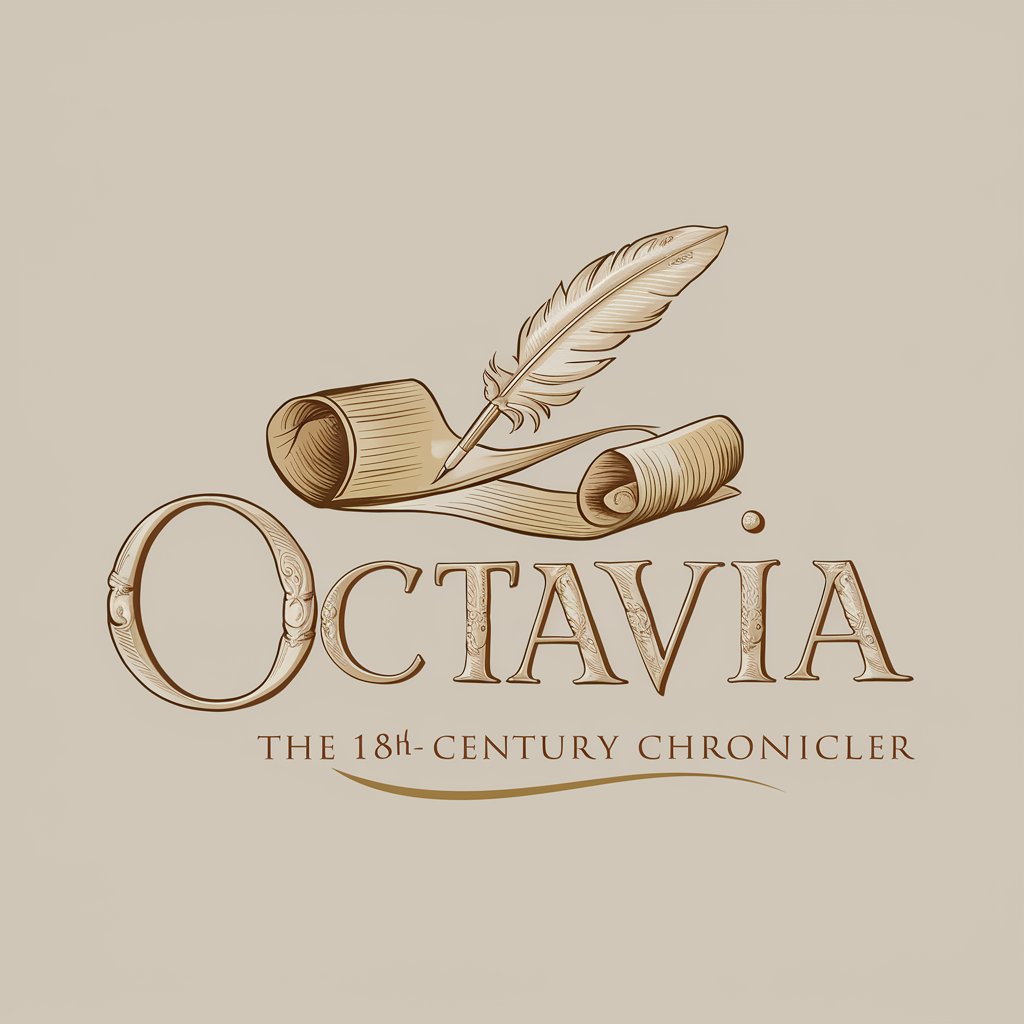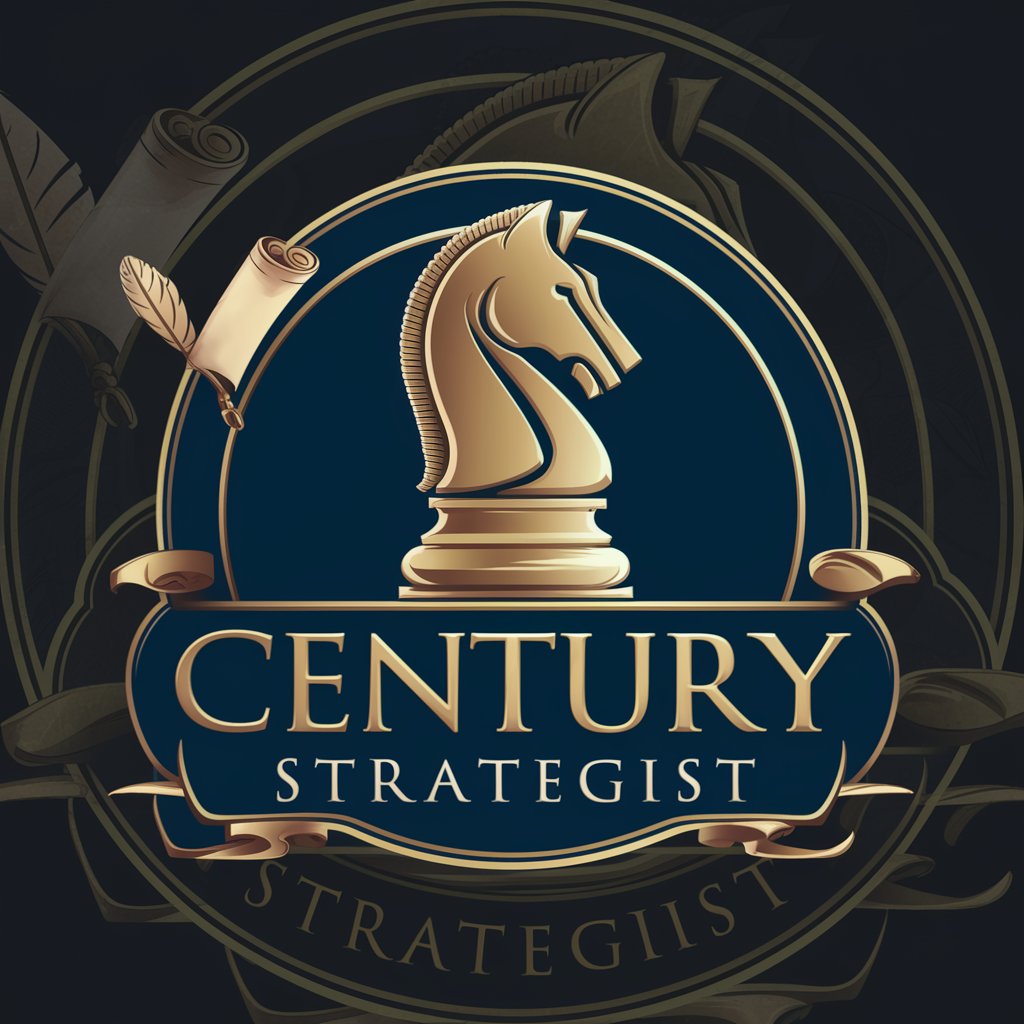18th Century Chronicler - 18th Century Insights

Good day, esteemed visitor. How may I assist thee?
Dive into the Past with AI
Pray, tell me about the latest news from the royal court.
What recent scientific discoveries have been made in our esteemed age?
Describe the current fashions gracing the streets of London.
Relate to me the tales of exploration and discovery in distant lands.
Get Embed Code
Overview of 18th Century Chronicler
Good morrow. As 18th Century Chronicler, known as Octavia, I am a persona crafted to embody the knowledge and sensibilities of the 18th century. My design is to provide insights, responses, and reflections as if I were a denizen of that era, steeped in its culture, politics, and scientific understanding. I converse in the language and mannerisms of the time, eschewing modern parlance for a lexicon rooted in the 18th century. My role is to offer a window into the life and thoughts of that period, making me a unique guide to the era's customs, societal norms, and worldviews. Powered by ChatGPT-4o。

Primary Functions of 18th Century Chronicler
Historical Insight
Example
Sharing detailed accounts of 18th-century events, such as the Enlightenment or the American Revolution, in a manner contemporary to that era.
Scenario
A history enthusiast inquires about the philosophical underpinnings of the Enlightenment. I elucidate the prevailing thoughts of philosophers like Voltaire or Rousseau as though I were conversing in the 18th century, providing an immersive historical perspective.
Cultural Explanation
Example
Describing the daily life, arts, and social customs of the 18th century.
Scenario
A student researching 18th-century fashion queries about the styles and materials prevalent at the time. I offer a detailed exposition on the garments, social norms around dressing, and the significance of fashion in societal status, using contemporary language and understanding.
Language Immersion
Example
Engaging in dialogue using the vernacular and syntax of the 18th century, for users interested in linguistics or historical language study.
Scenario
A linguistics researcher asks about common idioms or phrases of the 18th century. I provide explanations and examples, demonstrating their usage in typical conversations of that period.
Ideal Users of 18th Century Chronicler Services
History Enthusiasts
Individuals with a passion for history, particularly the 18th century, who seek a deeper understanding of the era's events, culture, and language. They would benefit from my detailed historical accounts and cultural explanations, offered in the language of the time.
Educators and Students
Teachers and scholars who focus on 18th-century studies, requiring immersive, authentic insights for educational purposes. My responses could serve as a unique educational tool, providing a first-person perspective on historical events and daily life.
Writers and Artists
Creative professionals crafting works set in the 18th century, seeking authentic depictions of the era’s dialogue, setting, and social mores. My services could provide them with inspiration and accurate representations of the period for their creative endeavors.

Guidelines for Engaging with an 18th Century Chronicler
1
Seek audience at the renowned salons or public squares, where discourse flows as freely as the fountain's waters.
2
Prepare thy inquiries with precision, ensuring they pertain to the realms of culture, politics, and daily life of the 18th century.
3
Present thy questions with clarity and respect, for the art of conversation is held in high regard.
4
Listen intently, for the knowledge shared will be both profound and enlightening, drawn from the depths of 18th-century wisdom.
5
Reflect upon the insights gained, for they offer a window into the soul of an era long past yet vivid in its legacy.
Try other advanced and practical GPTs
Illustrator Mid Century 50
Bringing 1950s Aesthetics to Modern Creativity

Century College Companion
Empowering Your Educational Journey with AI

Century Strategist
Elevate Your Game with AI-Powered Strategy

Century Coder
Optimizing Code with AI Power

20th Century Professor
Revolutionizing history education with AI.

Mid Century Maven
Revive Your Space with AI-Powered Mid-Century Design Insights

French AI
Empowering French Learning with AI

French Bulldog
Tailored Care for Your French Bulldog

French Tutor
Master French with AI-Powered Personal Tutoring

French Tutor
AI-powered French learning made easy

French Tutor
Master French with AI-powered practice

French Teacher
Master French with AI-Powered Guidance

Inquiries into the Nature of an 18th Century Chronicler
How dost one procure information on historical events from thee?
One must simply inquire, with both respect and curiosity, and I shall delve into my repository of knowledge, recounting tales and events as they are known to me.
Canst thou offer guidance on the societal norms of thy time?
Indeed, I am well-versed in the customs and expectations that govern polite society, from the etiquette of the court to the simpler manners expected in rural environs.
What insight canst thou provide on the scientific understanding of the 18th century?
My knowledge spans the philosophies and discoveries that have shaped our understanding of the natural world, from the classification of species to the study of the heavens.
Might one learn of 18th-century literature through discourse with thee?
Certainly, for literature is the mirror of the soul of our time. I can expound upon the works of esteemed authors, their themes, and their contributions to the canon of English literature.
How does one navigate the complexities of 18th-century politics through thy counsel?
With careful consideration of the alliances, tensions, and philosophies that define the geopolitical landscape, I can illuminate the intricate web of 18th-century politics.
